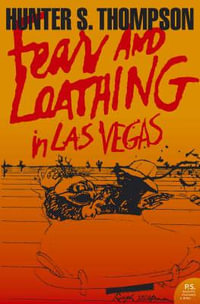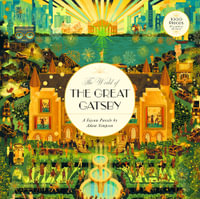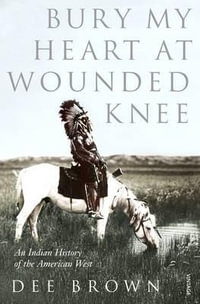This book tells the story of how Confederate civilians in the Old Dominion struggled to feed not only their stomachs but also their souls. Although demonstrating the ways in which the war created many problems within southern communities, Virginia's Private War: Feeding Body and Soul in the Confederacy, 1861-1865 does not support scholars who claim that internal dissent caused the Confederacy's downfall. Instead, it offers a study of the Virginia home front that depicts how the Union army's continued pressure created destruction, hardship, and shortages that left the Confederate public spent and demoralized with the surrender of the army under Robert E. Lee.
This book, however, does not portray the population as uniformly united in a Lost Cause. Virginians complained a great deal about the management of the war. Letters to the governor and to the Confederate secretary of war demonstrate how dissent escalated to dangerous proportions by the spring and summer of 1863. Women rioted in Richmond for food. Soldiers left the army without permission to check on their families and farms. Various groups vented their hatred on Virginias rich men of draft age who stayed out of the army by purchasing substitutes. Such complaints, ironically, may have prolonged the war, for some of the Confederacy's leaders responded by forcing the wealthy to shoulder more of the burden for prosecuting the war. Substitution ended, and the men who stayed home became government growers who distributed goods at reduced cost to the poor. But, as the case is made in Virginias Private War, none of these efforts could finally overcome an enemy whose unrelenting pressure
strained the resources of Rebel Virginians to the breaking point.
Arguing that the state of Virginia both waged and witnessed a "rich man's fight" that has until now been downplayed or misunderstood by many if not most of our Civil War scholars, William Blair provides in these pages a detailed portrait of this conflict that is bold, original, and convincing. He draws from the microcosm of Virginia several telling conclusions about the Confederacy's rise, demise, and identity, and his study will therefore appeal to anyone with a taste for Civil War history--and Virginia's unique place in that history, especially.
Industry Reviews
"Bill Blair has made an important addition to the growing literature on the home front in the Civil War, which adds a crucial dimension to our understanding of that conflict. He demonstrates that, whatever their opinion of the Confederate government and its measures, most Virginians remained loyal to the cause of Southern independence to the bitter end. Instead of sapping the will to win, as some scholars have maintained, white civilians helped to sustain army
morale. In Virginia the Confederate cause did not collapse internally; it was crushed externally by a determined enemy."--James M. McPherson, Princeton University
"Well researched, readable, and highly interpretative. Recommended for both academic and larger public libraries."--Library Journal
"Virginia's Private War is a work of creative research, brilliant analysis, and breathtaking originality. Blair has explored the forging of Confederate identity at the local and state levels more thoroughly and perceptively than any previous scholar. There is fresh information and insight on nearly every page. Facile generalizations about such familiar topics as 'loss of will' fall right and left. This is far and away the best study ever done of a
southern state during the Civil War."--George C. Rable, University of Alabama
"Engagingly written, meticulously researched, and thoughtfully argued, Virginia's Private War offers an important and fresh contribution to our understanding of the Civil War. Bill Blair's thorough and sensitive account of the ways in which different groups of Virginians responded to secession, war, and defeat develops a complex and nuanced argument that simultaneously acknowledges the issues that divided Virginians and those that unified them.
Virginia's Private War will appeal to all who are interested in the Civil War, whether general readers or specialists, and will reward its readers with a compelling picture of the ways in which a diverse--and often
internally divided--society responded to the social, political, and military challenges that the war provoked."--Elizabeth Fox-Genovese, Emory University
"Well-researched and lucidly written, this is a valuable study of the Virginia home front with implications that reach beyond the Old Dominion state. Offering an articulate, nuanced challenge to the common picture of a Confederate South riven by internal division, it portrays instead the remarkable resilience of Virginians in the face of a harsh struggle for survival."--Mark Grimsley, The Ohio State University
"William Blair's book recasts our understanding of the Confederate home front. His innovative research and subtle interpretation reveal new meanings of the American Civil War."--Edward L. Ayers, University of Virginia
"Blair holds a mirror up to the grim realities Virginians faced as their state absorbed the shock of invading Union armies. He provides a solid and readable contribution to accounts of that troubled period in our history."--Virginian-Pilot
"This book should find a receptive audience far beyond the boundaries of Virginia."--News and Record
"[T]his is the best work on the Confederate home front to date. It should appeal to a wide readership, from scholars to the general public."--CHOICE
"William Blair's Virginia's Private War must surely rank among the best studies of a Confederate state at war. He presents a complex and multifaceted picture of the stresses and strains of a society very much in the front line, and of the discontents, shortages and sufferings which many of its people endured."--Times Literary Supplement
"...Blair has done a fine job of research and devoted careful thought to this book...Virginia's Private War is a detailed, highly sophisticated, and intellectually challenging work that sheds a new light on the Confederate home front and should spark much worthwhile thought, research, and debate in the years to come."--Columbiad

























